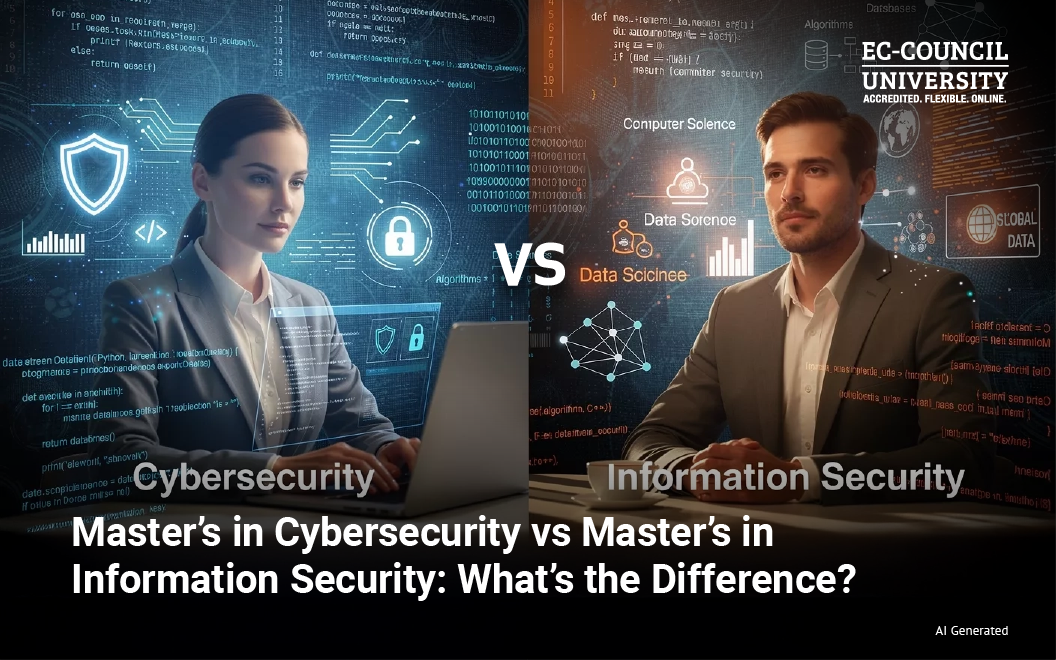The digital landscape is a battlefield. As our reliance on technology continues to grow, so do the threats posed by cybercriminals. This necessitates a skilled cybersecurity workforce as our frontline defense. This blog discusses the myriads of reasons why online cybersecurity education is gaining traction by facilitating a flexible and accessible way to provide individuals with industry-standard skills.
The Rise of Online Cybersecurity Education
The demand for cybersecurity professionals is skyrocketing. According to a report by Grand View Research, the cyber security training industry worldwide is expected to reach a projected revenue of US$ 13,698.1 million by 2030. A compound annual growth rate of 17.1% is expected of the worldwide cybersecurity training industry from 2024 to 2030 (Horizon Grand View Research, 2024). It reflects the growing awareness of the need for cybersecurity expertise. Cybersecurity education online plays a vital role in meeting this demand by providing opportunities for individuals to learn cybersecurity regardless of their location or background.
Traditionally, cybersecurity education was a domain of universities and specialized institutions. However, the digital age has democratized knowledge, ushering in a new era of learning cyber security online opportunities. Online platforms offer a multitude of advantages:
- Accessibility: Cybersecurity education online shatters geographical barriers. Anyone with an internet connection can learn cyber security, making it ideal for individuals in remote locations, busy schedules, or those seeking a career change.
- Affordability: Online courses can be significantly cheaper than traditional programs, opening doors for a wider audience. This financial accessibility fosters a more diverse cybersecurity workforce, crucial for tackling a constantly evolving threat landscape.
- Flexibility: Online learning authorizes individuals to comprehend at their own pace. They can revisit materials for clarification, manage their workload according to their schedule, and juggle learning with other commitments.
- Scalability: Online platforms can accommodate many learners simultaneously, making meeting the ever-growing demand for cybersecurity professionals easier. This is critical as the cybersecurity skills gap widens, threatening the overall security of our digital infrastructure.
Trends Shaping the Future of Online Cybersecurity Education
The cybersecurity education landscape online is a dynamic ecosystem constantly evolving to meet industry needs. Here are some key trends shaping its future:
- Focus on Hands-on Learning: Moving beyond theory, online programs will increasingly incorporate practical exercises, simulations, and gamified elements. This “learning by doing” approach allows learners to learn cyber security through real-world scenarios, fostering problem-solving skills and preparing them for the challenges they’ll encounter in the field.
- Micro-credentials and Stackable Certifications: Shifting away from lengthy degree programs, online education will offer bite-sized modules and micro-credentials that cater to specific cybersecurity domains. Learners can stack these credentials to build a comprehensive skillset or focus on in-demand areas like cloud security or ethical hacking. This modular approach allows for targeted learning and faster career advancement.
- Integration of Emerging Technologies: As Artificial Intelligence (AI) and Machine Learning (ML) play a bigger role in cybersecurity, online programs will integrate these technologies into the curriculum. Learners will learn how AI and ML are used for threat detection, vulnerability assessment, and incident response. This prepares them to work effectively alongside these powerful tools in the real world.
- Collaboration with Industry Leaders: Online platforms will forge alliances with industry leaders to bridge the void between theory and practice. This collaboration will directly bring real-world case studies, guest lectures from experienced professionals, and insights into the latest industry trends to learners. This ensures the curriculum is relevant and addresses the most pressing cybersecurity challenges.
- Emphasis on Soft Skills: Technical expertise is a cornerstone for cybersecurity professionals, but it’s insufficient. Soft skills like communication, collaboration, and critical thinking are equally important. Online programs will prioritize these soft skills, equipping learners to effectively communicate complex security issues, work collaboratively within teams, and present solutions to stakeholders.
The Future of Online Cybersecurity Education
The future of online cybersecurity education looks promising, driven by several key factors and trends:
- Increased Popularity: As the cybersecurity skills gap widens, online learning will likely become the primary mode of education for aspiring cybersecurity professionals. Its accessibility and flexibility will attract a larger talent pool, contributing to a more robust cybersecurity workforce.
- Personalized Learning: Learning platforms will leverage AI to personalize the learning experience, tailoring content, recommendations, and course paths based on individual learning styles, career goals, and existing skills. This personalized approach will optimize learning outcomes and keep learners engaged.
- Immersive Learning Experiences: Integrating Virtual Reality (VR) and Augmented Reality (AR) will create immersive learning experiences. Learners can practice their skills in realistic simulated environments, such as defending a network from a cyberattack or conducting a digital forensic investigation. This hands-on approach will further enhance learning and retention.
- Focus on Continuous Learning: Given the ever-evolving nature of cybersecurity threats, online platforms will offer ongoing learning opportunities and resources to help professionals stay abreast of the latest trends and updates. This focus on continuous learning ensures that the cybersecurity workforce remains agile and adaptable to counter emerging threats.
- Freemium Models: To make learning cyber security online even more accessible, platforms might adopt freemium models, providing basic courses for free while offering more advanced content through paid subscriptions. This two-tiered approach allows individuals to explore the field before committing financially and caters to learners at various skill levels.
Building a Secure Digital Future
By embracing innovative technologies, fostering a culture of hands-on learning, and collaborating with industry leaders, online platforms can provide individuals with the skills they must have to safeguard our digital world in the years to come. However, this future requires action from various stakeholders:
- Individuals: If you’re interested in a career in cybersecurity, explore the plethora of cybersecurity education online options available. Identify your learning style, career goals, and budget to find the program that best suits your needs. Cybersecurity is dynamic, and EC-Council University can help you get started, so commit to continuous learning to stay ahead.
- Educational Institutions: Online learning platforms must adapt their curriculum to reflect the evolving cybersecurity landscape continuously. Partner with industry experts to ensure relevant course content addresses real-world challenges. Consider offering micro-credentials and stackable certifications to cater to learners seeking targeted skill development.
- Governments and Industry Leaders: Governments and industry leaders can play a vital part in boosting cybersecurity education online. They can do this by funding scholarships, endorsing reputable online programs, and collaborating with educational institutions to develop relevant curricula.
Specialized Areas to Explore:
While the core trends outlined above paint a broad picture of the future of online cybersecurity education, it’s important to recognize the diverse segments within this growing field. Here’s a glimpse into some of the specialized areas you can explore when you learn cybersecurity online:
- Ethical Hacking: This segment focuses on the techniques and methodologies used by ethical hackers, also known as penetration testers, to identify computer system and network vulnerabilities. Online programs in ethical hacking equip you with the skills to simulate cyberattacks in a controlled environment, helping organizations identify and address security drawbacks before malicious actors can manipulate them.
- Cybersecurity for Business Professionals: Not everyone needs to become a full-fledged cybersecurity specialist. Online programs designed for business professionals provide them with a foundational understanding of cybersecurity best practices. This proficiency authorizes them to make intellectual decisions about data security, identify and avoid phishing attempts, and implement basic security measures to protect themselves and their organizations.
- Cloud Security: With the ever-increasing adoption of cloud computing, the need for cloud security expertise is booming. Online programs like the ones provided by EC-Council University in this area delve into securing cloud environments, data encryption, access control mechanisms, and compliance requirements specific to cloud platforms.
- Incident Response: Cyberattacks are a reality, and organizations must be prepared to respond effectively. Online incident response programs teach you how to identify, contain, and recover from security incidents, minimizing damage and ensuring business continuity.
The cybersecurity terrain is continuously evolving, and new threats always emerge. As you learn cybersecurity online, remember that continuous learning is paramount. It always helps to opt for online platforms that offer ongoing professional development opportunities, including access to new courses, workshops, and certifications that can assist you in staying updated with the latest trends and threats.
References:
Horizon Grand View Research. (2024). Global Cyber Security Training Market Size & Outlook https://www.grandviewresearch.com/horizon/outlook/cyber-security-training-market-size/global







